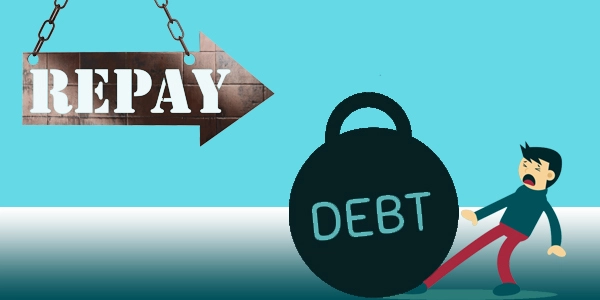How you wish you could throw your debts into that bin and get rid of them forever! But you cannot! You wake up every morning with a depressing feeling and increased load of debts on your shoulders.
Debts cannot be erased like just like that. You need proper planning, rational budgeting, a little bit of discipline, some constant effort and a firm determination to get yourself out the debt mess. Wondering how to go about it? Well, it is not that difficult.
Here are 3 useful tips on how to prepare for your debt repayment:
1.Curtail your credit cards- You are already suffocating under debt burden. So, it is important that you take care not to increase your burden further. To start with it, curtail your credit cards. You can leave the accounts open until you have paid off the balances. But do not close the accounts while you still have balances on the cards, as it will make your accounts appear maxed out. And that will hurt your credit score. So, keep your credit card accounts open but be resolved not to use them.
2.Start with a monthly budget- If the mention of budget is giving you a real shock then be assured it is not as arduous as you think! Just take a note pad and a pen and make a list of your expenses, your liabilities and your income. It will give you a fair idea about where you need to cut on and save for the repayment of your obligations.
3.Chalk out a payment plan- Now that you are done with your budgeting, you know exactly how much you need to dedicate towards your liabilities. So, quickly chalk out a payment plan and decide on how you should start with your payments.
You can try out the following options while you decide on how to start with your debt repayments:
- Pay more than the minimum: Try and pay more than the minimum on your debts every month. The minimum payment, comprising only about 2-3% of your total balance, only prolongs your repayment. And in the process, you pay more interest. The more you pay every month, the quicker you get rid of your debts.
- Use balance transfer: Zero in on your credit card with the lowest interest rate. If you have not reached the maximum limit on that card, then consider transferring a higher-interest bill to it. If your entire balance is too large to fit in one low-interest card, pay at least the minimum due on all of your cards except one. Transfer most of your debt repayments to that card, and pay it off as soon as possible. When the balance on that card reaches zero, repeat this method with the remaining debt repayments.
- Borrow against your life insurance: If you have a life insurance with cash value, you can borrow money against the policy and use it for the repayment of your debts. Usually, the insurance company charges a nominal interest rate and you can take your time to repay the loan, which is quite advantageous. However, you are advised to repay it, because if you die without repaying the loan, the beneficiary will get a policy value minus the loan balance and the interest.
- En-cash your savings and investments: You could cash out your savings and investments and use the proceeds toward debt repayment. Though you might not want to do it, but in times of crisis that is the only logical thing to do.
- Borrow a 401(k) loan: If you have a 401(k) retirement plan, then you can borrow up to 50% of the account's value, or $50,000, whichever is smaller, and use the proceeds for your debt repayment. Interest rates on 401(k) loan are usually cheaper than that on credit cards. However, you must repay this loan within five years. If you leave your employment before full repayment, the outstanding balance becomes payable immediately. So, make sure you pay off your 401(k) loan before you leave your job.
- Get a HELOC: If you have substantial equity on your house, then you may take out a Home Equity Line of Credit against you house and use the proceeds to pay off your obligations. A HELOC carries lower interest, which makes you repayment easier. Moreover, interest on HELOC is mostly tax- deductable.
- Take out a personal loan: You can ask your friends or relatives for a loan to pay off your existing debts. There are bright chances of getting it and that too at a reasonable interest rate. They might even bear your late payments. But to be on the safer side of things and avoid hard feelings, you should go for a written agreement when you borrow the loan, Make sure you stick to the terms of the agreement and try pay it off ASAP!
- Negotiate with your creditors: Now if you are in a really bad situation and all of the above options seem unsuitable to you condition, then the last thing you can possibly do is talk to your creditor. Convince your creditor about your dilapidated finances and tell him that you need to negotiate the terms of payment. Also mention that if you are not allowed a negotiation, you might end up filing for bankruptcy. And that will surely work! Most creditors prefer a debt settlement through negotiation, because it fetches them at least something while a bankrupt debt will only increase their losses.
You can try out the above options and pay off your debts fast and hassle-free! But before you fix on your payment option, do evaluate the options and check out which one best suits you! After all you must ensure that you do not invite more troubles and your repayment plans do not push you further into a vicious cycle of debts!













